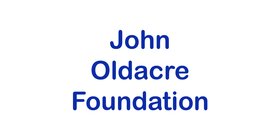
Neil Eastham
I grew up on a Lancashire dairy farm where my family continue to milk 340 pedigree Holsteins cows. I studied at the University of Liverpool for my undergraduate degree in Veterinary Science and after graduating in 2007 I joined Bishopton Veterinary Group in Ripon, North Yorkshire as a farm animal vet. I returned to academia, again at Liverpool University, completing my Diploma in Bovine Reproduction in 2014 and in January 2017 I became a partner in the practice.
Bishopton Veterinary Group is a thirty vet multi discipline practice that operates from five branches across North Yorkshire. As one of twelve dedicated ruminant vets I am responsible for veterinary care across a large number of commercial farms. A significant amount of my time is spent carrying out preventative herd/flock health work as well as providing traditional ambulatory and emergency care.
In my role as an advanced breeding director of RAFT Solutions Ltd (sister company of Bishopton Veterinary Group) I am responsible for delivering advanced breeding solutions on farm including; embryo collection and transfer, ovum pick up/in-vitro fertilisation and bull breeding soundness soundness examinations. A proportion of my time is also spent delivering training for both farmers and vets. I have a special interest in dairy genetics and the role that this plays when considering all aspects of herd health.
My wife Heather is a small animal vet and we live in Ripon. I would like to thank Heather and my colleagues at the practice for their support and encouragement to complete my project. I would also like to thank the John Oldacre foundation for sponsoring my Nuffield scholarship, without this generous sponsorship this amazing opportunity would not be possible.
John Oldacre Foundation

Study Overview
Genetics serve as the building blocks that influence the production, type, health and fitness characteristics of the dairy cow. As a result genetics directly influence a number of key areas of on farm management including; production, milk quality, health, fertility, heifer management and feed efficiency.
Genomic testing is changing the way dairy producers make management, selection and breeding decisions. Up until now the major focus of genomic testing has been the benefit in identifying high quality young bulls early. However the same power of prediction can now be used for female young stock, and testing now represents a new management tool available to dairy farmers.
Genomic test results are significantly more reliable than traditional parent average values as they reveal more about the genetic potential an animal actually inherited. Using genomic testing, a heifer’s genetic potential is revealed early in life and genetic progress can be accelerated with confidence. As a veterinary surgeon working with farmers to optimise herd health I want to explore the improvement in herd health and subsequent performance that can be achieved by utilising female genomic testing.
Since its introduction in the dairy sector in 2008, genomic technology has nearly doubled the rate of genetic gain on the male side. The use of genomic testing to identify superior bulls is now common across a number of dairy breeds and the same technology is now being developed and deployed in the beef sector. Despite increasing farmer confidence in genomics, with 60% of artificial inseminations now being from young genomic bulls (AHDB data) the uptake of female testing in the UK remains low. As a result farmers are potentially missing an opportunity to maximise genetic gain and improve on farm efficiency.
My project represents an opportunity to develop an evidence based approach on how to cost effectively introduce female genomic testing at the individual farm level. Potentially increasing the number of UK dairy females that are genomic tested and helping UK dairy farms to become more efficient.